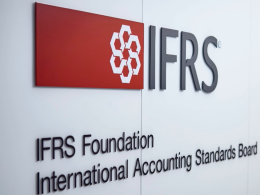A coalition of more than 50 carbon credit project developers, represented by the Project Developer Forum (PD Forum), is calling on the Science Based Targets initiative (SBTi) to allow companies to use offsetting more extensively to meet their Scope 3 (indirect) emissions targets.
The SBTi, which launched its Net-Zero Standard for large businesses in 2021, currently requires companies to aim for a 90% absolute reduction in emissions across their operations and value chains. However, many firms have found it challenging to achieve this level of reduction, particularly for Scope 3 emissions. Presently, the Standard caps offsets at 10% for Scope 3 emissions.
The PD Forum is advocating for the SBTi to raise this threshold, arguing that it would channel “critical climate finance to vulnerable regions.” The coalition highlights the role of carbon finance in supporting projects such as clean cookstoves, renewable energy schemes, energy efficiency improvements, sustainable agriculture, and forest conservation.
“Projects like clean cookstoves and forest conservation, which deliver both emissions reductions and significant co-benefits, heavily depend on carbon finance to succeed,” said Dr. Sven Kolmetz, Director of the PD Forum. “Allowing companies to leverage environmental certificates, SBTi can enable more equitable climate solutions.”
The PD Forum’s appeal coincides with COP29, where nations are focusing on expanding funding for voluntary carbon markets and refining the architecture of national carbon markets. However, the proposal has faced criticism from activist organisations like the Global Campaign to Demand Climate Justice, which argue that carbon offsetting has historically failed to deliver impactful climate finance. Concerns have been raised about human rights violations and projects that do not meet promised climate benefits.
In response, the PD Forum asserts that credibility within the carbon credit sector is improving. “Innovative, high-impact projects” are now undergoing rigorous third-party verification to ensure greater reliability and impact.
The SBTi’s stance on expanding the role of carbon credits remains undecided. The issue has sparked intense debate within the organisation and the broader corporate sustainability space, ultimately leading to the resignation of the SBTi’s CEO, Dr. Luiz Amaral, earlier this year.
In July, the SBTi released a series of technical publications that stopped short of indicating a clear position on the matter. These documents highlighted the lack of conclusive evidence on the effectiveness of carbon offsetting. A synthesis report noted that only 12-33% of carbon credits reliably deliver their stated climate benefits to corporate buyers.
The SBTi also identified ongoing challenges in voluntary carbon market infrastructure, including issues of permanence, leakage, and additionality. While efforts are underway to address these concerns, their resolution remains uncertain.
The organisation’s final decision on changes to the Net-Zero Standard is expected in 2025, following further research and stakeholder consultations. Until then, the debate over the role of carbon offsets in achieving net-zero goals continues to intensify.





















